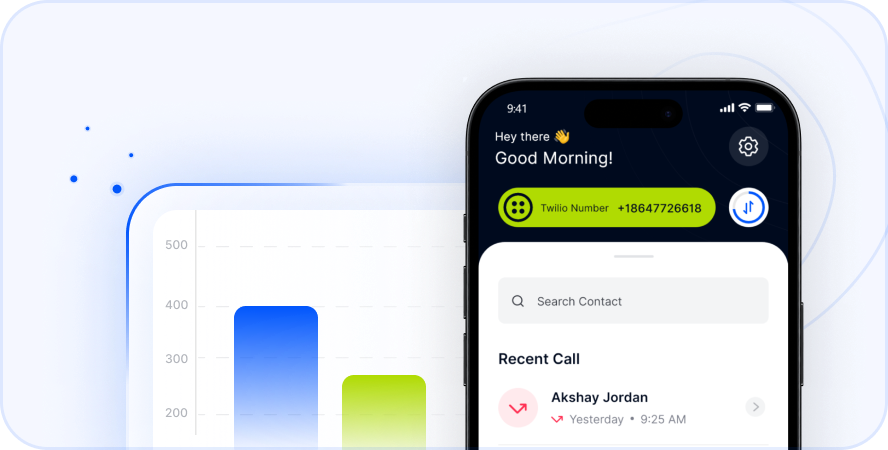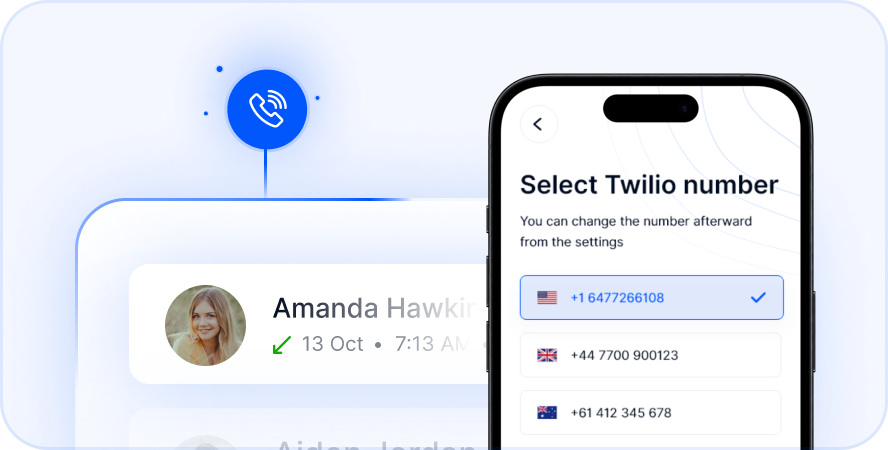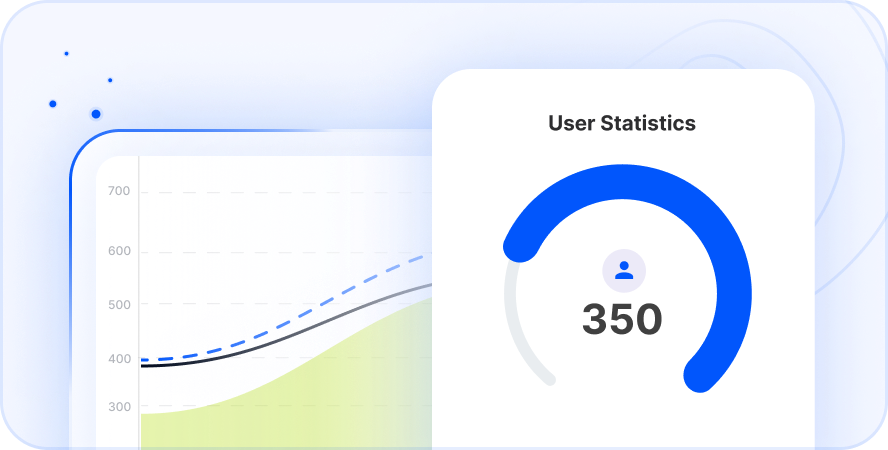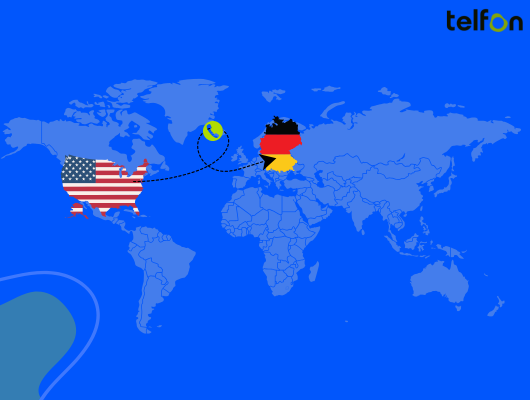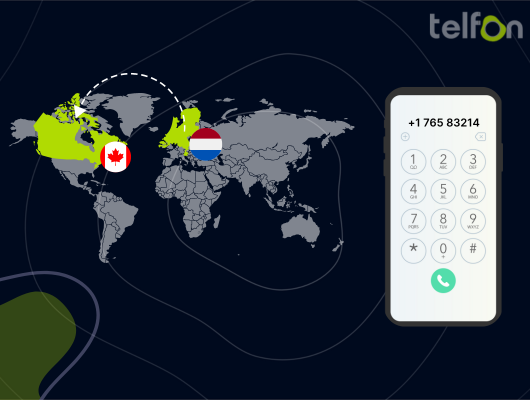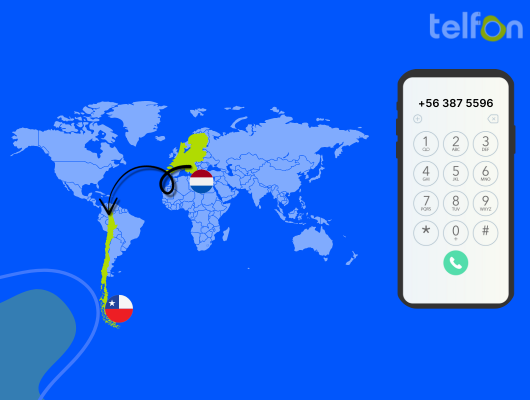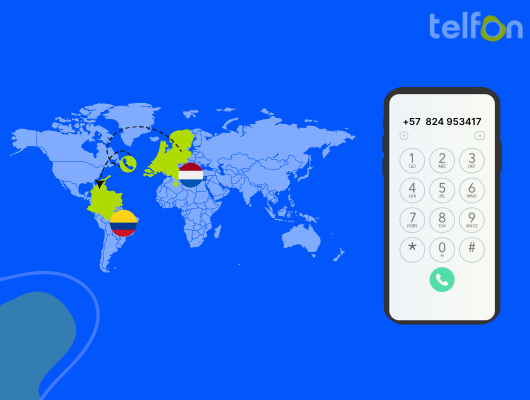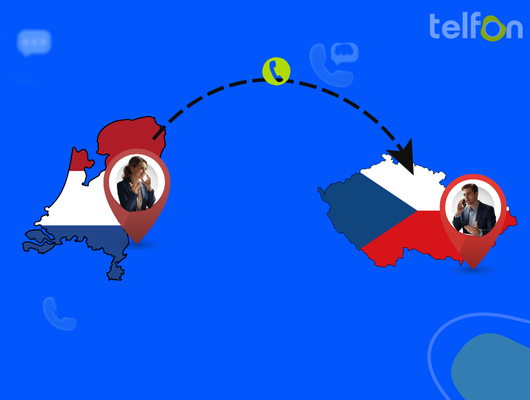Calling friends, family, or business contacts in Germany from the United States might seem complex at first. You need to navigate international dialing codes, time zones, and potential costs. Many people worry about these details. This comprehensive guide will help you understand every step involved in making a successful call. It covers everything from traditional landline and mobile dialing methods to smart, cost-effective solutions like Telfon’s virtual number services.
Understanding the correct process for calling Germany from USA is important. Whether it’s for personal reasons or crucial business communication, clear connections matter. We will explore how to dial, what to consider regarding timing, and how modern technology makes international calls to Germany much easier and more affordable. By the end, you will feel confident reaching anyone in Germany. For general information on international calling codes, you can refer to resources like CountryCode.org.
Understanding the Basics of International Dialing
Making an international call requires a specific sequence of numbers. This sequence ensures your call leaves your country, reaches the correct country, and then connects to the right local number. For international calls to Germany, you will always need an exit code, a country code, and the German area code followed by the local number.
This guide will break down each part. We want to make sure you dial correctly every time. Knowing these fundamental steps prevents misdials and saves you time.
What is an Exit Code?
An exit code tells your phone provider that you are making an international call. It signals that the number you are dialing next is outside your country’s network. For calls originating from the United States, the standard exit code is “011”.
Think of it as the first gate your call passes through. Without it, your phone system would assume you are trying to dial a domestic number.
What is a Country Code?
Every country has a unique country code. This code directs your call to the specific country you want to reach. Germany’s country code is “49”.
This code is like the address of the country itself. It ensures your call lands on German soil, virtually speaking. You always dial the country code right after the exit code.
Calling Germany from a Landline
Using a landline to call Germany from USA is straightforward. You simply follow a specific sequence of numbers. This method has been reliable for many years.
Let’s look at the exact steps. You will need to dial the international access code, Germany’s country code, the specific area code, and then the local phone number.
Step-by-Step Landline Dialing
- Dial the US Exit Code: Start by dialing “011”. This code tells your phone system you are making an international call.
- Dial Germany’s Country Code: Next, dial “49”. This directs your call to Germany.
- Dial the German Area Code: After the country code, dial the specific area code for the city or region in Germany you are calling. Remember to drop any leading “0” from the German area code when dialing internationally. For example, Berlin’s local area code is “030”, so you would dial “30”.
- Dial the Local Phone Number: Finally, dial the local subscriber number. This is the individual’s or business’s unique phone number.
So, the complete sequence looks like this: 011 + 49 + German Area Code (without the leading 0) + Local Phone Number.
Example for Landline Call
Imagine you want to call a number in Berlin, Germany. The Berlin area code is “030”. If the local number is “1234 5678”, your full dialing sequence would be:
011 + 49 + 30 + 12345678
This sequence ensures your call connects properly. It’s the standard USA to Germany dialing code for landlines.
Calling Germany from a Mobile Phone
Calling Germany from US using a mobile phone offers a simpler process. Most smartphones and mobile networks allow you to use a plus sign (+) in place of the international exit code. This simplifies the dialing sequence considerably.
This method is convenient, especially when you are on the go. You do not need to remember the “011” exit code.
Step-by-Step Mobile Dialing
- Dial the Plus Sign (+): Press and hold the “0” key on your mobile phone until the “+” symbol appears. This symbol automatically replaces the international exit code (like “011”).
- Dial Germany’s Country Code: Enter “49” immediately after the plus sign.
- Dial the German Area Code: Input the specific German area code, dropping any leading “0”. For example, for Munich, where the local area code is “089”, you would dial “89”.
- Dial the Local Phone Number: Finally, dial the local subscriber number.
The complete mobile dialing sequence looks like this: +49 + German Area Code (without the leading 0) + Local Phone Number.
Example for Mobile Call
If you are calling a number in Munich, Germany, with a local area code of “089” and a local number “9876 5432”, your mobile dialing sequence would be:
+49 + 89 + 98765432
This streamlined process makes calling Germany from US via mobile very user-friendly.
Navigating German Area Codes
Understanding the area code system in Germany is crucial for successful calls. German phone numbers include a dialing code that identifies the specific region or city. These codes help direct your call to the correct geographical location within Germany.
When you call Germany from USA, you must include this specific area code. Just remember to drop the leading zero (0) that is often used when dialing within Germany.
Key German City Area Codes
Germany has numerous area codes, each corresponding to a specific city or region. Here are some of the most common ones you might encounter:
| City/Region | German Area Code (with 0) | International Dialing Code (without 0) |
|---|---|---|
| Berlin | 030 | 30 |
| Hamburg | 040 | 40 |
| Munich | 089 | 89 |
| Cologne | 0221 | 221 |
| Frankfurt | 069 | 69 |
| Stuttgart | 0711 | 711 |
| Düsseldorf | 0211 | 211 |
| Leipzig | 0341 | 341 |
When you dial, you will use the “International Dialing Code” column values. For instance, to call Berlin, you would use “30” after “49”.
Mobile Numbers in Germany
German mobile phone numbers do not use specific city area codes. Instead, they typically start with a mobile network prefix. These prefixes usually begin with “01” (e.g., 0151, 0160, 0170). When dialing a German mobile number internationally, you still drop the leading “0”.
So, if a German mobile number is 0176 1234567, you would dial +49 176 1234567.
Knowing these distinctions helps ensure your call goes through without issues.
Understanding the German Phone Number Format
A German phone number has a clear structure. This structure helps make sure calls connect accurately. When you want to call Germany from USA, knowing this format prevents common dialing errors.
A standard German phone number consists of three main parts: the country code, the area code, and the local subscriber number.
Breakdown of a German Number
- Country Code (49): This is always “49” for Germany. You dial this after your international exit code or the ‘+’ sign.
- Area Code (Ordinarily without leading zero): This code specifies the city or region. For example, “30” for Berlin or “89” for Munich. When dialed internationally, the leading “0” is removed.
- Local Subscriber Number: This is the unique number for the specific phone line or mobile device. Its length varies, usually between 4 and 8 digits, depending on the area code and subscriber type.
For instance, a complete number might look like: +49 (30) 1234 5678. When dialing, you would write it as +493012345678.
Examples of German Phone Number Formats
- Fixed Line Example (Berlin):
In Germany: 030 1234 5678
From US: 011 49 30 12345678 or +49 30 12345678
- Mobile Phone Example:
In Germany: 0176 98765432
From US: 011 49 176 98765432 or +49 176 98765432
Notice how the international format always omits the leading “0” from the German area code or mobile prefix. This is a common point of confusion, so always double-check.
The Best Time to Call Germany from the US
Considering the time difference is extremely important when you call Germany from USA. Germany primarily uses Central European Time (CET), which is UTC+1. During Daylight Saving Time (DST), they switch to Central European Summer Time (CEST), which is UTC+2. The United States, however, has multiple time zones.
Calling at an inconvenient hour can disrupt someone’s sleep or work. It’s best to aim for business hours or evening for personal calls.
Time Zone Differences
Here’s a quick reference for common US time zones relative to German time (during standard time; adjust for DST):
- Eastern Time (ET): 6 hours behind CET. If it’s 9 AM in New York (ET), it’s 3 PM in Berlin (CET).
- Central Time (CT): 7 hours behind CET. If it’s 9 AM in Chicago (CT), it’s 4 PM in Berlin (CET).
- Mountain Time (MT): 8 hours behind CET. If it’s 9 AM in Denver (MT), it’s 5 PM in Berlin (CET).
- Pacific Time (PT): 9 hours behind CET. If it’s 9 AM in Los Angeles (PT), it’s 6 PM in Berlin (CET).
Remember to account for Daylight Saving Time changes in both countries. These changes happen at different times of the year.
Optimal Calling Hours
To ensure you reach someone during their waking or working hours in Germany:
- For Business Calls: Aim to call between 9 AM and 5 PM German time.
This translates to 3 AM – 11 AM ET, 2 AM – 10 AM CT, 1 AM – 9 AM MT, and 12 AM – 8 AM PT.
For most US callers, this means making calls in the morning or early afternoon on your end.
- For Personal Calls: Late afternoon or early evening in Germany usually works best.
Try calling between 6 PM and 9 PM German time.
This would be 12 PM – 3 PM ET, 11 AM – 2 PM CT, 10 AM – 1 PM MT, and 9 AM – 12 PM PT.
Always double-check the current time in Germany before dialing. A quick online search for “current time in Berlin” or “time in Germany” can save you from an awkward call.
Cost of Calling Germany from the US
The cost of international calls to Germany can vary significantly. Traditional landline and mobile carriers often charge high per-minute rates. These charges can quickly add up, especially if you have long conversations or make frequent calls.
Understanding these costs is important. It helps you choose the most economical way to communicate. Many callers are surprised by the size of their bill.
Traditional Calling Costs
- Landline Carriers: Major landline providers typically charge anywhere from $0.05 to $0.50 or more per minute. These rates depend on your specific plan and the time of day. Some plans may offer international calling packages, but these often have a monthly fee.
- Mobile Carriers: Mobile phone companies also charge per-minute rates for international calls. These rates can be higher than landline rates, sometimes reaching $1.00 or more per minute without an international calling plan. Many carriers offer add-on packages for international calls. However, these packages still have limits or higher rates once you exceed certain thresholds.
- Hidden Fees: Be aware of potential connection fees or peak-hour surcharges. These can increase your total cost.
High costs can deter people from making necessary calls. This is particularly true for businesses that rely on frequent international communication.
Cost-Effective Alternatives
Fortunately, several alternatives offer more affordable ways to call Germany from USA:
- Voice over Internet Protocol (VoIP) Services: Services like Skype, Google Voice, or specialized VoIP providers often offer much lower per-minute rates, or even free calls to other users of the same service.
- Virtual Number Services: Companies like Telfon provide virtual number Germany options. These services let you make calls over the internet at significantly reduced rates. Sometimes, they offer unlimited calling plans for a fixed monthly fee.
- Messaging Apps: Apps like WhatsApp, Telegram, or Facetime (for Apple users) allow free calls over Wi-Fi or data connection. Both parties need to use the same app. This is excellent for personal calls.
Choosing the right method can save you a lot of money. It also provides clearer connections.
Common Challenges When Calling Germany
Even with clear instructions, you might encounter some challenges when you call Germany from USA. Awareness of these potential issues helps you troubleshoot quickly.
Knowing what to expect can reduce frustration. You can prepare better for your communication needs.
Misdialing Errors
- Forgetting the Exit Code: Many callers forget to dial “011” from a landline or omit the “+” sign from a mobile. This leads to an invalid number error.
- Incorrect Area Code: Dialing the wrong German area code is common. Sometimes, people forget to drop the leading “0” from the German internal dialing code.
- Incorrect Local Number: Even a single digit off in the local number will prevent the call from connecting.
Always double-check the full number before dialing. It’s a simple step that saves time.
High Costs and Bill Shock
- Unexpected Charges: Many people are unaware of their carrier’s per-minute rates for international calls. This can result in surprisingly high phone bills at the end of the month.
- Roaming Charges: If you are traveling outside the US and trying to call Germany, mobile roaming charges can make calls extremely expensive. This applies even if you have an international calling plan for calls from the US.
Always review your phone plan details or consider alternative calling methods for cost predictability.
Time Zone Confusion
- Waking Someone Up: Miscalculating the time difference can lead to calling someone in the middle of the night. This is inconvenient and unprofessional.
- Missed Opportunities: For business, calling outside of office hours means you might miss important contacts.
Use a reliable time zone converter tool. Always confirm the local German time before you place a call.
Call Quality Issues
- Poor Connection: Traditional international calls can sometimes suffer from static, delays, or dropped calls. This is more common with older network infrastructure.
- Data Reliability: While VoIP services generally offer good quality, a poor internet connection on either end can lead to choppy audio or dropped calls.
Choosing a service with a robust network helps ensure clear communication.
How Telfon Enhances Your Calls to Germany
Telfon is a cutting-edge virtual phone system designed to simplify and improve international calls to Germany. It addresses many common challenges faced by individuals and businesses. With Telfon, getting a virtual number Germany becomes easy. Making Telfon international calls means enjoying reliable connections and advanced features.
It’s more than just a calling app; it’s a complete communication solution. Telfon makes connecting globally effortless.
Simplified Dialing and Cost Savings
- No Complex Codes: Telfon streamlines the dialing process. You use an intuitive interface, often saving you from remembering long dialing sequences.
- Affordable Rates: Telfon offers competitive rates for calling Germany from US. It eliminates the fear of high per-minute charges common with traditional carriers. Many users find it significantly more affordable.
- Virtual Numbers for Local Presence: A key feature is the ability to acquire a virtual number Germany. This means you can have a German phone number, even if you are in the US. This makes it cheaper for people in Germany to call you (they dial a local German number). It also builds trust and professionalism for businesses.
Advanced Features for Individuals and Businesses
Telfon goes beyond just basic calling. It provides a suite of features that enhance communication:
- International Calls to 180+ Countries: Telfon supports calls to a vast number of countries, making it a versatile tool for global communication.
- Call Recordings: This feature is invaluable for businesses needing to keep records of conversations, for training, or for compliance.
- Send & Receive SMS/Bulk SMS: You can send and receive text messages, and even send bulk messages for marketing or announcements.
- WhatsApp Integration: Telfon allows integration with multiple WhatsApp accounts. This is crucial for businesses that communicate heavily via WhatsApp.
- Multi-country Numbers Simultaneously: Manage virtual numbers from different countries all within one platform. This is perfect for businesses with global operations.
- Voicemail & Voicemail to Text: Never miss a message. Voicemail is available, and voicemails can even be transcribed into text for easy reading.
- Call Forwarding: Forward calls from your virtual German number to any other phone.
- User Analytics (B2B): Businesses can track call history, user activity, and performance through dashboards with graphs and charts.
- Twilio Token Management: Advanced management for robust cloud telephony.
- Number Blocking & Custom Messaging: Control who can call you and send personalized messages.
Telfon is ideal for HR personnel, sales executives, travel agencies, and anyone needing consistent, clear communication with clients or partners in Germany. It provides a robust and reliable cloud telephony solution.
Simplify your calls to Germany with Telfon’s affordable solutions. Get started now!
Why You Might Need to Call Germany
People call Germany from USA for a wide range of reasons. These reasons can be deeply personal or critically important for business operations. Understanding these motivations highlights the importance of reliable international calling solutions.
Whether it’s staying connected with loved ones or expanding your market, the need for clear communication is universal.
Personal Connections
- Family and Friends: Many individuals have family members or friends living, studying, or working in Germany. Regular calls help maintain these vital relationships. They bridge the geographical distance.
- Travel and Tourism: If you are planning a trip to Germany, you might need to call hotels, tour operators, or local contacts to finalize arrangements. Travelers also call home to the US from Germany.
- Studying Abroad: Students often need to communicate with universities, host families, or support services in Germany before or during their studies.
- Emergencies: In unforeseen circumstances, a quick and reliable call to Germany might be essential for urgent personal matters.
Business and Professional Needs
- International Hiring: Companies in the US often hire talent from Germany. HR personnel need to conduct interviews, onboard new employees, and manage communication across borders. Telfon’s features like call recording and bulk SMS are highly beneficial here.
- Sales and Marketing: Businesses looking to expand into the German market need to contact potential clients, partners, or distributors. A virtual number Germany can give a local presence, boosting credibility.
- Customer Support: If your business serves German customers, providing local support numbers and ensuring seamless communication is paramount for customer satisfaction.
- Supply Chain Management: Companies dealing with German suppliers or manufacturers need constant communication to manage orders, logistics, and quality control.
- Real Estate and Investment: Professionals in real estate or international investment often need to liaise with counterparts, clients, or legal entities in Germany.
- Collaboration with Remote Teams: Many companies operate with distributed teams. Effective communication with German team members is vital for project coordination and productivity.
For all these scenarios, having an efficient, cost-effective, and feature-rich calling solution like Telfon makes a significant difference. It turns a potential communication barrier into a smooth process.
Tips for Successful International Calls
Making a successful international call to Germany involves more than just dialing the correct numbers. A few practical tips can enhance your calling experience and ensure smooth communication.
These suggestions help you avoid common pitfalls and make the most of your conversations.
Double-Check the Number
Always verify the full phone number, including the country code and area code (without the leading zero). A quick cross-reference with your contact list or an online directory can prevent misdials. Even one wrong digit stops the call from connecting.
Be Mindful of Time Zones
Before every call, confirm the current time in Germany relative to your location. Use a world clock app or a quick online search. This simple step avoids calling at inconvenient hours, like late at night or during busy work meetings.
Consider Your Connection Type
If using a VoIP service or app, ensure you have a stable internet connection (Wi-Fi or strong mobile data). A weak connection can lead to poor call quality, delays, or dropped calls. For important business calls, a wired internet connection often provides the most stability.
Prepare Your Conversation
For business calls, have your talking points or questions ready. For personal calls, think about what you want to discuss. Being prepared helps you stay focused and make the most of your valuable call time. This is especially useful if you are paying by the minute.
Test Your Setup
If using a new service or equipment (like a headset), make a test call to a domestic number first. This ensures your microphone and speakers are working correctly. It also helps you get comfortable with the interface before an important international call.
Learn Basic German Phrases (Optional)
While many Germans speak English, knowing a few basic phrases like “Hallo” (Hello), “Wie geht es Ihnen?” (How are you?), or “Danke schön” (Thank you very much) can be a nice gesture. It shows respect for their language and culture.
By following these tips, you can ensure your calls to Germany are clear, productive, and respectful of the person you are calling.
Frequently Asked Questions (FAQs)
Here are some common questions people ask when they want to call Germany from USA.
Q1: What is the country code for Germany?
The country code for Germany is 49. You must dial this after your international exit code (011 from a US landline, or ‘+’ from a mobile phone).
Q2: Do I need to remove any zeros from German numbers when dialing internationally?
Yes, you must remove the leading “0” from the German area code or mobile prefix when dialing internationally. For example, Berlin’s area code “030” becomes “30”. A mobile number starting “0176” becomes “176”.
Q3: What is the best time to call Germany from the US?
For business calls, aim for 9 AM to 5 PM German time. For personal calls, 6 PM to 9 PM German time is usually good. Always check the current time in Germany relative to your US time zone.
Q4: Is it expensive to call Germany from the US?
Traditional carriers can charge high per-minute rates. However, services like Telfon or other VoIP apps offer much more affordable rates, often with unlimited calling plans or virtual numbers.
Q5: Can I text Germany from the US?
Yes, you can send SMS to German mobile numbers. Most mobile carriers support international texting, though charges may apply. Services like Telfon also offer SMS sending and receiving features.
Q6: What is a virtual number and how does it help with calling Germany?
A virtual number is a phone number that is not tied to a physical phone line. With Telfon, you can get a virtual number Germany. This makes it appear as though you have a local German presence. It allows people in Germany to call you at local rates, and you can make calls from it at reduced international rates.
Q7: Can I use WhatsApp to call Germany for free?
Yes, if both you and the person in Germany have WhatsApp and a stable internet connection, you can make free calls over the app. However, this relies on both parties using the same app and having internet access.
Q8: What if my call doesn’t go through?
First, double-check the entire dialing sequence. Ensure you have the correct exit code, country code, area code (without the leading 0), and local number. Check the time zone. If issues persist, contact your phone service provider or your virtual number service support (like Telfon’s support).
Q9: Does Telfon offer features for businesses calling Germany?
Absolutely. Telfon provides comprehensive business features like call recordings, user analytics, multi-country number management, WhatsApp integration, and bulk SMS. These features are designed to support international business communication, including Telfon international calls to Germany.
Q10: How do German mobile numbers differ from landline numbers when dialing internationally?
German mobile numbers start with prefixes like “015,” “016,” or “017.” When dialing internationally, you still drop the leading “0” from these prefixes. Landline numbers have city-specific area codes (e.g., “030” for Berlin), where the leading “0” is also dropped for international calls.
Conclusion
Calling Germany from USA is a common need for many individuals and businesses. While it involves specific dialing codes and an understanding of time zones, the process is straightforward once you know the steps. You dial an exit code, Germany’s country code, the area code (without the leading zero), and then the local number.
Traditional calling methods can be expensive. Fortunately, modern solutions like Telfon have changed the game. Telfon makes international calls to Germany more affordable and feature-rich. It provides cost-effective rates, reliable connections, and useful tools like virtual number Germany options. Whether you are connecting with family, managing international teams, or expanding your business, Telfon offers a seamless and powerful communication experience.
Say goodbye to high bills and complex dialing. Embrace a smarter way to stay connected globally.


